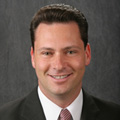Choosing a financial advisor for an aging family member can be every bit as important as choosing a doctor or lawyer for them. Financial advice, like medical or legal advice, can be critical and potentially ruinous if poorly given. Therefore, you should take the time and effort to carefully research potential candidates and choose a financial advisor that is right for your loved one.
Personal finance is a broad, complex and ever-changing field. However, just about anyone can call themselves a financial advisor, which makes it confusing for the public to determine who to trust. The advisor you choose must be qualified, educated, and experienced in the specific areas of investment management, personal finance and other matters in which your loved one requires guidance. The right advisor doesn’t necessarily need to be an expert in every area of their field, but they should know when outside expertise is needed and have the ability to work with other professionals to answer questions and devise solutions.
Experience and knowledge are only valuable if they are used to benefit your loved one, though. The ideal advisor should have integrity, a commitment to ethical behavior, and high personal and professional standards. You want to work with someone who will put your family’s needs and interests first. Fee-only registered investment advisors are unique in that they have a fiduciary duty, which means they are legally required to put their clients’ interests before their own.
Financial Planning Is Personal
It can be difficult to trust another person, even a professional, with one’s detailed financial information and monetary decisions. For this reason, the relationship between a client and a financial advisor is very important. A good financial advisor will communicate clearly and openly, develop rapport, and build trust with your loved one (and with you, if you will also be interacting with the advisor and participating in decision-making).
Choose someone you and your loved one feel comfortable with. The more the advisor knows about a senior’s finances, goals and concerns, the better guidance they’ll receive. If you or your loved one do not feel totally comfortable with a particular advisor, then you may hold back important details about the financial situation. An advisor may then provide you with inaccurate or incomplete advice based on the partial information you have volunteered, which benefits no one.
Keep in mind that the comfort level you feel with an advisor and the nature of the communication between you may be two different things. Communication is always a two-way street, but it’s the advisor’s job to facilitate conversations and foster feelings of openness and security.
Interview Potential Financial Advisors Before Hiring
Disclosure and trust are crucial to any working relationship with a financial advisor. Trust is built on two factors: the advisor acting in a senior’s best interests, and full disclosure of their background, business practices and other details. Full disclosure means the advisor is forthright in providing answers about their work experience, compensation, methods of planning and any past disciplinary actions that may have been taken against them by various government regulatory agencies and professional associations.
The easiest way to gather all this information is to request a written disclosure document from the advisor. This will either be what’s called a Form ADV or an equivalent brochure. These documents are also available on the Investment Adviser Public Disclosure website sponsored by the Securities and Exchange Commission (SEC). After looking over an advisor’s information, you may want to follow up with a personal interview, which many advisors will arrange for free.
Sample Interview Questions for Financial Advisors
- What financial designations and/or licenses do you hold? (The Certified Financial Planner (CFP) designation is a widely accepted mark of education and ethical standards.)
- What is your educational background?
- What kind of work experience do you have?
- What kind of services do you provide?
- Do you specialize in certain areas of financial planning?
- What types of clients do you typically work with?
- Do you have any minimum net worth or income requirements?
- What is your approach to financial planning?
- How would you address my relative’s goals and needs?
- Will you or another professional implement recommendations from the plan you create?
- Do you have any business relationships that might present a conflict of interest?
- How do you bill for services?
- What are your typical charges?
- Do you have a fiduciary duty to act in your clients’ best interests?
In addition to obtaining answers to the core questions above, a face-to-face interview should provide a good sense of the advisor’s personality and demeanor. Do they seem forthright in their answers? Do they come across as trustworthy? Are they focused on your loved one’s goals, or do they seem to be mostly concerned with selling financial products?
Qualities of a Good Financial Advisor
- They Ask the Right Questions
A good advisor knows how and when to ask the important questions that encourage clients to open up so that they can gather all the information they need to create a financial plan. - They Pay Attention to and Act on the Information You Provide
A financial advisor should always listen to what clients have to say, prioritize their objectives, respect the chosen level of risk they are comfortable with, and tailor recommendations to suit these factors. - They Treat Clients with Courtesy and Respect
If you feel as though you or your loved one are not being heard, understood or treated with respect, seek financial advice elsewhere. - They Explain Things Until You Understand
A good financial advisor will take as much time as necessary to explain a proposed plan or transaction and make sure their clients understand exactly what is going to happen and what risks and benefits are involved.
How Do Financial Advisors Charge?
Personalized financial advice does come at a cost. Before hiring an advisor, you and your aging loved one should have a clear understanding of how they will be compensated both initially and on an ongoing basis. Advisors can be paid in a variety of ways for their work, and some use a combination of compensation methods, depending on a client’s needs.
Common Compensation Methods and Fee Structures
- Fee-Only
This type of advisor works directly for the client and is compensated entirely through fees for consultation, plan development or investment management. These fees may be charged on an hourly or project basis, or as a percentage of assets under management. Don’t make the mistake of confusing fee-only advisors with fee-based advisors. The latter is compensated by commissions or trailers on products sold. A fee-only pricing structure helps to prevent conflicts of interest between the advisor and the client. - Commission-Only
Compensation is received solely from the sale of financial products that clients agree to purchase in order to implement investment recommendations. - Combination Fee/Commission
A fee is charged for consultation, advice and financial plan preparation on an hourly, project or percentage basis. In addition, the advisor may receive commissions from the sale of recommended products used to implement the client’s plan. - Fee-Offset
Commissions from the sale of financial products are offset against fees charged for the planning process.
Regardless of what compensation method an advisor uses, you should request information on any real or potential conflicts of interest they may have in working with you. In addition to commissions received from any financial product sales, you should ask whether there are outside incentives or bonuses to be gained by the advisor for making certain recommendations.
Searching for a Financial Advisor
To get started on your search for a financial advisor to join your loved one’s care team, ask for referrals from family, friends or business associates who may have worked with one. Attorneys, accountants, insurance agents, bankers and other financial specialists are another excellent source of referrals because advisors often work with them to carry out clients’ financial plans.
The Certified Financial Planner Board of Standards, Inc. maintains a comprehensive online database of Certified Financial Planner (CFP) professionals at letsmakeaplan.org that can be searched by geographical area. This website also offers useful tools and checklists to help the public learn about the financial planning process and choosing the right advisor.

